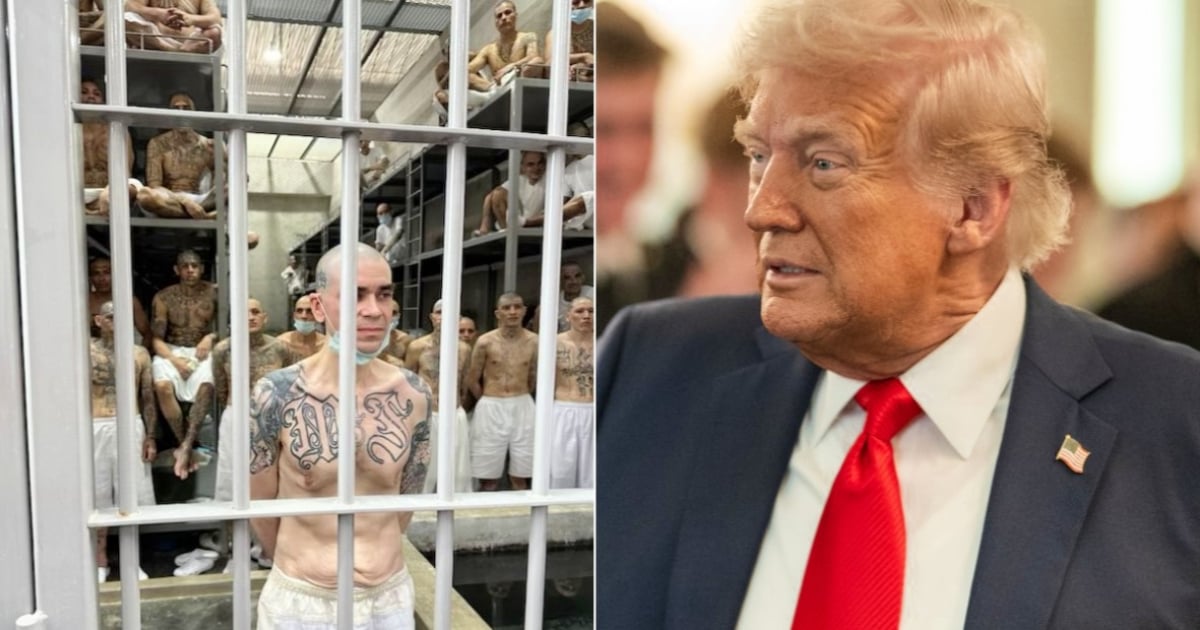The conflict between the judiciary and President Donald Trump's administration has reached a new peak as formal contempt proceedings have been initiated against the government. This comes after the administration allegedly ignored a court order that halted the deportation of over 200 migrants, predominantly Venezuelans, to a mega-prison in El Salvador.
Federal Judge James E. Boasberg from the Washington district found "probable cause" to believe that the Trump administration violated his March 15 order, which prohibited the deportation of migrants under the Alien Enemies Act—an 18th-century law traditionally reserved for wartime. Boasberg criticized the administration's "willful ignorance" in a 46-page document, as reported by the American press, for proceeding with the deportations despite being informed of the order.
"The Constitution does not tolerate intentional disobedience of court orders, especially by officials sworn to uphold it," Boasberg stated emphatically. He clarified, “The Court does not reach this conclusion lightly or hastily; indeed, it has provided the defendants ample opportunity to rectify or explain their actions. None of their responses have been satisfactory.”
The Flights and El Salvador's Prison
On March 15, while the order was still being communicated, two flights carrying more than 200 migrants departed from the United States to El Salvador, via Honduras. The deportees, mostly Venezuelans and Salvadorans, were accused without trial of being members of criminal gangs like MS-13 and Tren de Aragua, and were subsequently detained at the Center for Confinement of Terrorism (CECOT), the controversial maximum-security mega-prison spearheaded by Salvadoran President Nayib Bukele.
Boasberg suggested that the most effective way for the administration to purge the likely contempt would be to allow the deported migrants to "exercise their right to challenge their expulsion," even without being physically returned to the U.S.
State Secrets and Obstruction of Process
The White House denied violating the judge’s order. However, Press Secretary Karoline Leavitt conceded that the flight might have taken off before the written resolution, yet she did not provide the exact departure time, raising suspicions in the court.
When Boasberg requested flight details, the government invoked the state secrets privilege, blocking transparency and complicating judicial follow-up. According to the judge, the administration could "purge" its contempt by returning those sent to the Salvadoran prison to U.S. custody. Should the Department of Justice refuse, the judge plans to appoint an independent attorney to prosecute the case.
A Looming Constitutional Crisis
This case represents a pivotal moment in contemporary U.S. history. As the judge noted, “The Constitution does not tolerate voluntary disobedience of court orders, particularly from a coordinated branch sworn to uphold it.” The ramifications of a federal court formally declaring a presidential administration in contempt could trigger an unprecedented institutional crisis.
Boasberg highlighted the gravity of the situation, where “one branch of government deliberately ignores the instructions of another,” suggesting a breach in constitutional balance.
Bukele's Role and Defiant Message
The controversy deepened when President Bukele posted a defiant message on social media alongside a video of migrants entering the prison: “Oops. Too late.” This act was seen as a direct affront to both U.S. justice and international order.
The Case of Kilmar Armando Abrego García
Among those deported was Kilmar Armando Abrego García, a Salvadoran allegedly returned due to an "administrative error." The U.S. government accuses him of being a "terrorist," though no public evidence has been presented to support this claim. The case reached the Supreme Court, which ruled that Abrego García has the right to challenge his expulsion. Nevertheless, the Trump administration insists that his fate lies with Bukele, who refused to return him to the U.S. during a recent visit to Washington.
Partial Supreme Court Backing, With Cautions
Recently, the Supreme Court allowed the government to resume deportations under the Alien Enemies Act, citing a legal technicality: the lawsuit, they ruled, should have been filed in Texas, not Washington. However, the ruling also reminded that migrants are entitled to a judicial hearing before deportation, a step that was overlooked.
Chief Justice John Roberts even issued an unusual public statement to remind Trump of the judiciary's workings following his verbal attacks on Judge Boasberg and attempts to impeach him. U.S. media warn that the legal battle between Judge James Boasberg and the Trump administration transcends a mere court case: it is a testing ground for executive power limits, respect for the rule of law, and migrants' human rights. Boasberg has given the government a week to account under oath or present an effective remedy. Failure to do so will formalize the contempt, potentially leading to historic consequences.
Legal Contempt Proceedings Against Trump Administration
What triggered the contempt proceedings against the Trump administration?
The contempt proceedings were triggered by the Trump administration's alleged violation of a court order prohibiting the deportation of over 200 migrants to El Salvador, despite being informed of the order.
What was the role of the Alien Enemies Act in this case?
The Alien Enemies Act, an 18th-century law traditionally reserved for wartime, was cited by the Trump administration to justify the deportations, which Judge Boasberg found to be a violation of his order.
How did the White House respond to the court's accusations?
The White House denied violating the court's order, although Press Secretary Karoline Leavitt admitted the flight might have taken off before the order was formally written, but did not provide specific details.
What are the potential implications of these contempt proceedings?
If a federal court formally declares the Trump administration in contempt, it could lead to an unprecedented constitutional crisis and challenge the balance of power between government branches.
